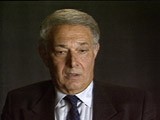You searched for: sky时时彩平台【Aurl:www.8233066.com】送888元.jnmj
<< Previous | Displaying results 1-10 of 23 for "sky时时彩平台【Aurl:www.8233066.com】送888元.jnmj" | Next >>
-
Jutta Szmirgeld
ArticleChildren's diaries bear witness to some of the most heartbreaking events of the Holocaust. Learn about the diary and experiences of Jutta Szmirgeld.
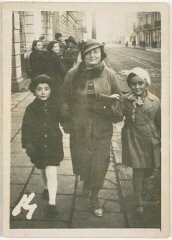
-
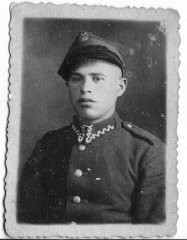
-
Auschwitz fence posts and Elie Wiesel quote on display at the United States Holocaust Memorial Museum
PhotoThis photograph shows Auschwitz fence posts and a quote from Elie Wiesel's Night . They are on display in the third floor tower room of the Permanent Exhibition at the United States Holocaust Memorial Museum. "Never shall I forget that night, the first night in camp, which has turned my life into one long night, seven times cursed and seven times sealed. Never shall I forget that smoke. Never shall I forget the little faces of the children, whose bodies I saw turned into wreaths of smoke beneath a silent…
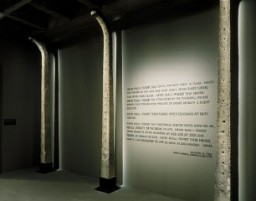
-
“Czech Family Camp” at Auschwitz Liquidated
Timeline EventJuly 11, 1944. On this date, the liquidation of the "Czech family camp" in Auschwitz took place. Michael Kraus later described the event in his diary.
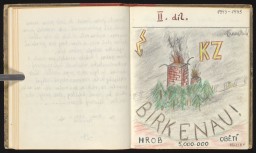
-
Saul Ingber describes forced labor and brutality in the Gusen subcamp of the Mauthausen concentration camp
Oral HistorySaul grew up in a religious Jewish family. He was trained as a tailor. In 1939 he was sent to forced labor along with most of the young men of his town. He worked in many different labor camps before being deported to the Mauthausen concentration camp system in 1944. While working there, Saul's hand was broken by an SS guard. He eventually ended up in the hospital in the Dachau camp. He was liberated by US troops in May 1945. After the war he returned to his hometown and was reunited with his sister. They…
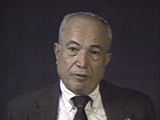
-
Ruth Elisabeth Dahl
ID CardRuth was born into an orthodox Jewish family in Geilenkirchen, a rural German town near the Dutch border. Her father, Isidor, was a respected cattle dealer in the area and her mother, Sophia, took care of the home. Ruth had two older siblings, Edith and Carl. 1933–39: When the Nazis came to power in Germany, life changed in Geilenkirchen. The townspeople supported the new regime and nobody helped their Jewish neighbors. Excluded from public institutions, Ruth attended a private Catholic school. In 1938,…
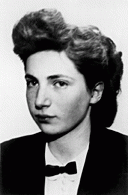
-
Saul Ingber
ID CardSaul was born to a Jewish family in the small northern Transylvanian town of Moisei, famous for its 18th-century monastery, to which many Christians came on pilgrimage. Saul's family was religious. His father transported lumber to several mills in the area. 1933-39: Saul and his brothers attended a Jewish school held at their neighbor's home. A rabbi led them in prayers and they learned quotations from holy texts. After his schooling he needed to learn a trade, so he decided to become a tailor. Jews were…
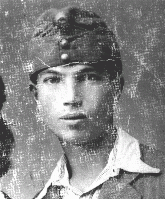
-
Harry Toporek
ID CardHarry was one of eight children born to a large Jewish family in the Polish town of Lask, 18 miles southwest of Lodz. The Toporeks operated a tannery. Harry attended a public school in the mornings and a religious school in the afternoons. After graduating from secondary school, Harry helped his family in the tannery. 1933-39: On Friday, September 1, 1939, Germany invaded Poland, and by Sunday German planes began bombing Lask. Harry and his family couldn't fight the planes so they fled into the fields.…
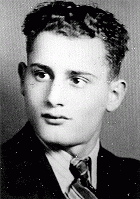
-
Estelle Laughlin
ArticleExplore Estelle Laughlin’s biography and learn about her experiences during the Warsaw ghetto uprising.
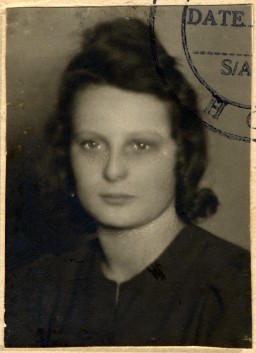
-
Steven Springfield describes the treatment of Jews in the Riga ghetto
Oral HistoryThe Germans occupied Riga in 1941, and confined the Jews to a ghetto. In late 1941, at least 25,000 Jews from the ghetto were massacred at the Rumbula forest, near Riga. Steven and his brother were sent to a small ghetto for able-bodied men. In 1943 Steven was deported to the Kaiserwald camp and sent to a nearby work camp. In 1944 he was transferred to Stutthof and forced to work in a shipbuilding firm. In 1945, Steven and his brother survived a death march and were liberated by Soviet forces.
